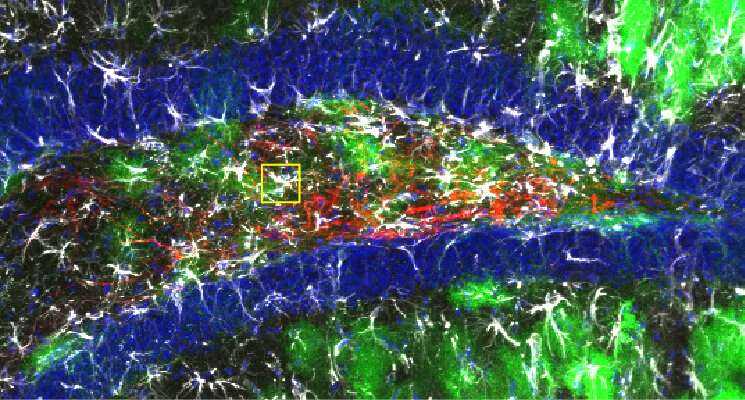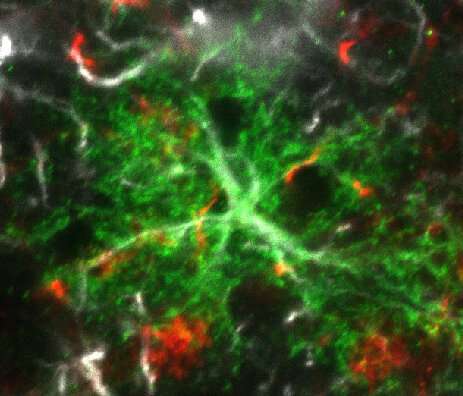Lack of key neuropeptide induces neuroinflammation to impair neural stem cells and limit new neuron production

The dentate gyrus is part of the hippocampus, an area of the brain that plays a critical role in memory formation, and contains neural stem cells that develop into other cell types, such as granule cells, mossy cells, and astrocytes. These niche cells can release signals that act on neural stem cells to regulate neurogenesis, the process of generating new neurons. The lab of Juan Song, Ph.D., associate professor in the UNC Department of Pharmacology, has been researching how certain local niche cells act on neural stem cells and regulate their behavior, but it has been unclear if and how these niche cells interact within the dentate gyrus to regulate neural stem cells.
In Neuron, Song and colleagues addressed these challenges and reported the role of a neuropeptide called cholecystokinin in the regulation of neural stem cells and neurogenesis within the hippocampus.
The researchers showed that stimulating a particular type of interneuron in the dentate gyrus—the cholecystokinin neuron—spurred neural stem cell depolarization via release of cholecystokinin neuropeptide. Moreover, cholecystokinin-induced neural stem cell depolarization required the activation of glutamate receptors on the neural stem cells. Cholecystokinin induced astrocytes to release glutamate, which acted on these glutamate receptors on the surface of stem cells. These actions ultimately increase the neurogenic potential of neural stem cells by promoting cell cycle progression via MAPK/ERK signaling.
Finally, the authors found that decreasing cholecystokinin release induced astrocyte reactivity and increased innate immune system processes. The resulting neuroinflammation lead to decreased neurogenic potential of neural stem cells, most likely through proinflammatory cytokine signaling.

"The surprising ways in which neuropeptides modulate circuits and astrocytes to link neuronal activity to neuroinflammatory conditions is still largely unknown", said first-author Brent Asrican, Ph.D., an assistant professor in the Song lab. "Future studies towards this direction will untangle the complex relationships between brain circuitry and non-neuronal brain cells in health and disease states."
"We're really excited about this study because we believe our findings have broad implications beyond adult neurogenesis," said Song, a member of the UNC Neuroscience Center. "Recent studies support the idea of reduced cholecystokinin in aged populations and patients with Alzheimer's disease. Knowledge gained from our studies will help scientists create new treatment strategies by targeting these neuropeptide systems."
More information: Brent Asrican et al. Neuropeptides Modulate Local Astrocytes to Regulate Adult Hippocampal Neural Stem Cells, Neuron (2020). DOI: 10.1016/j.neuron.2020.07.039



















